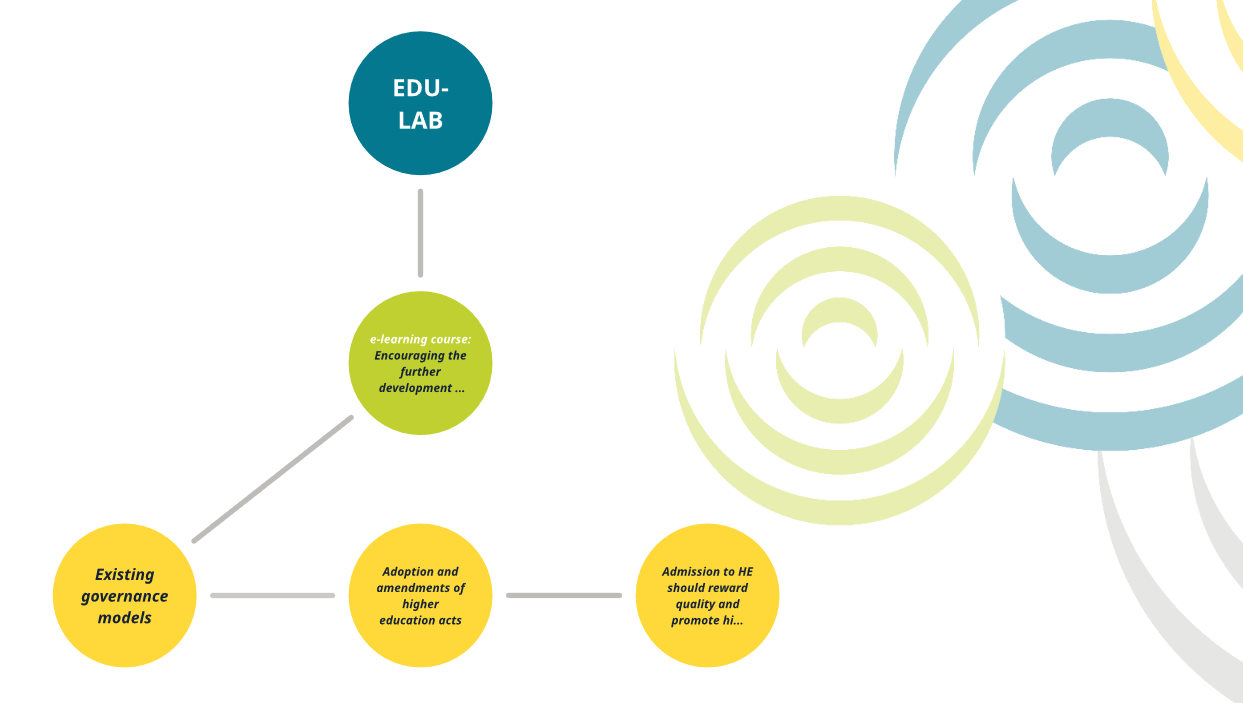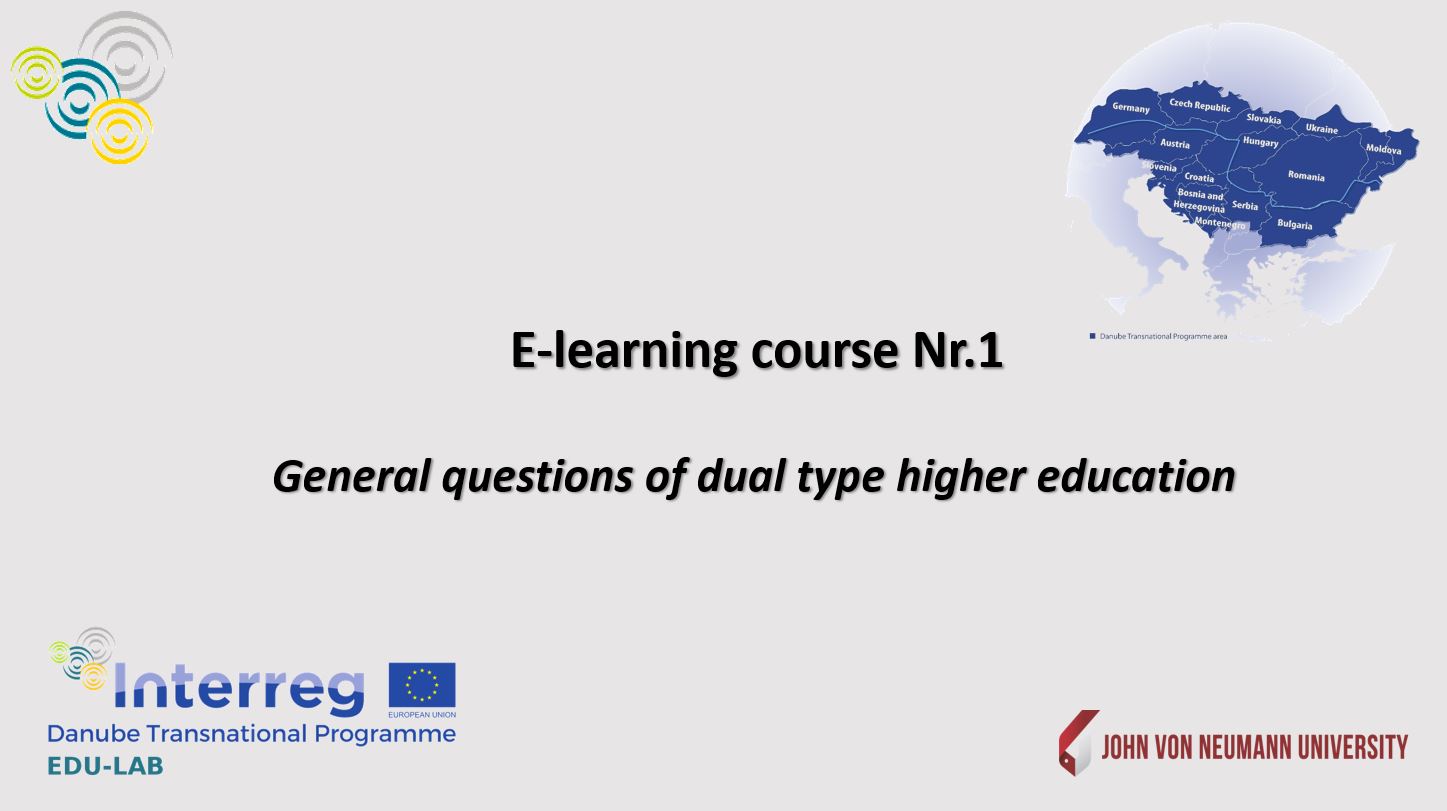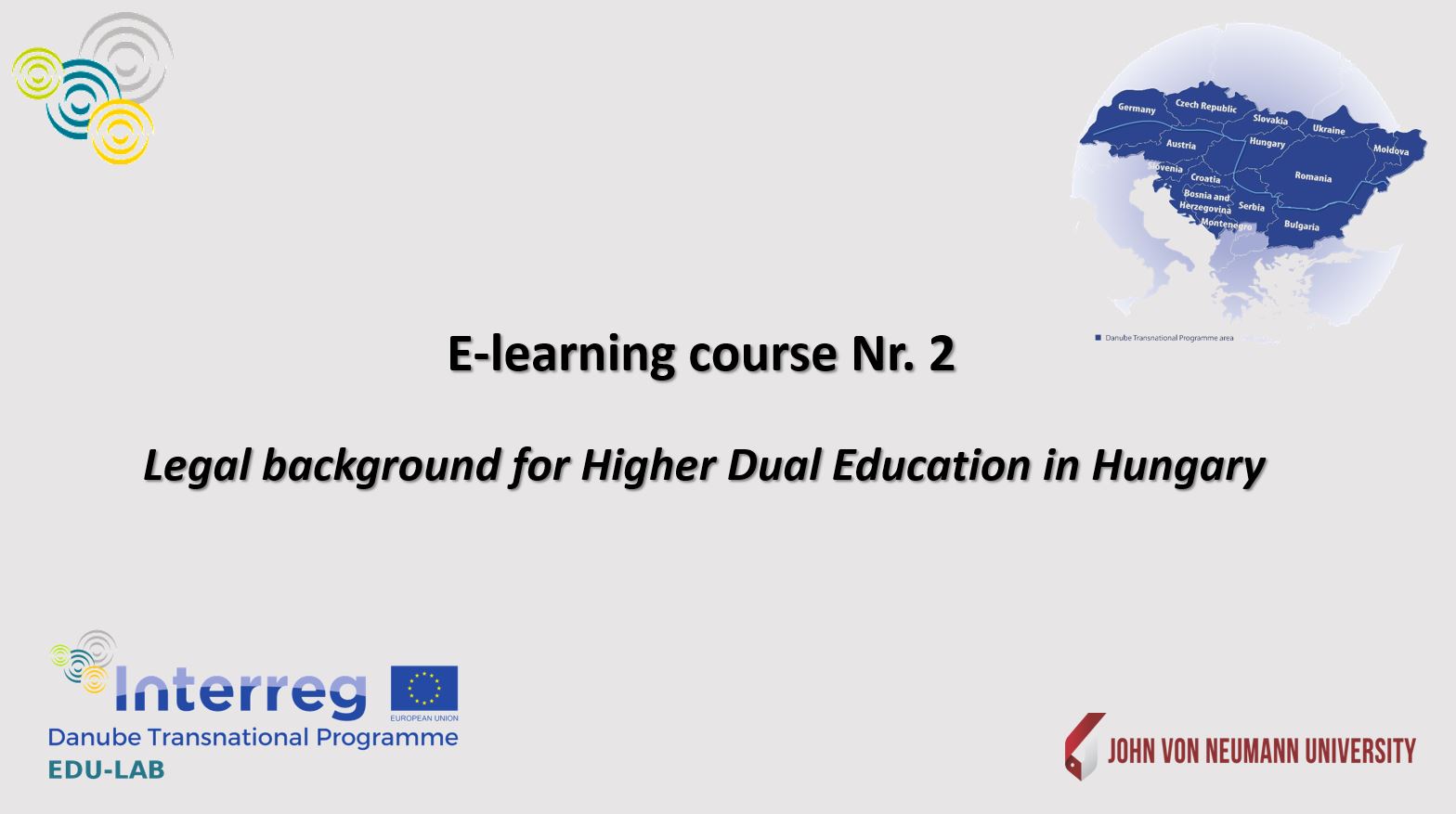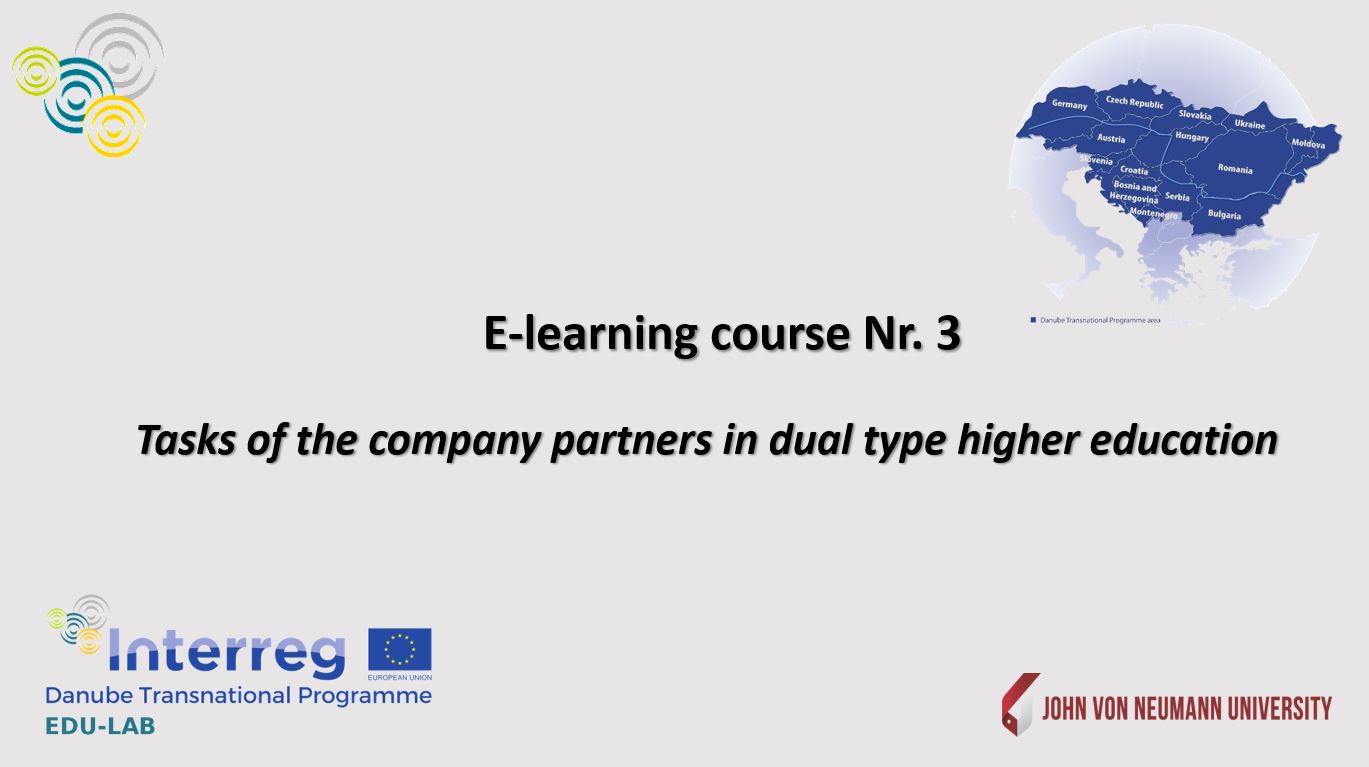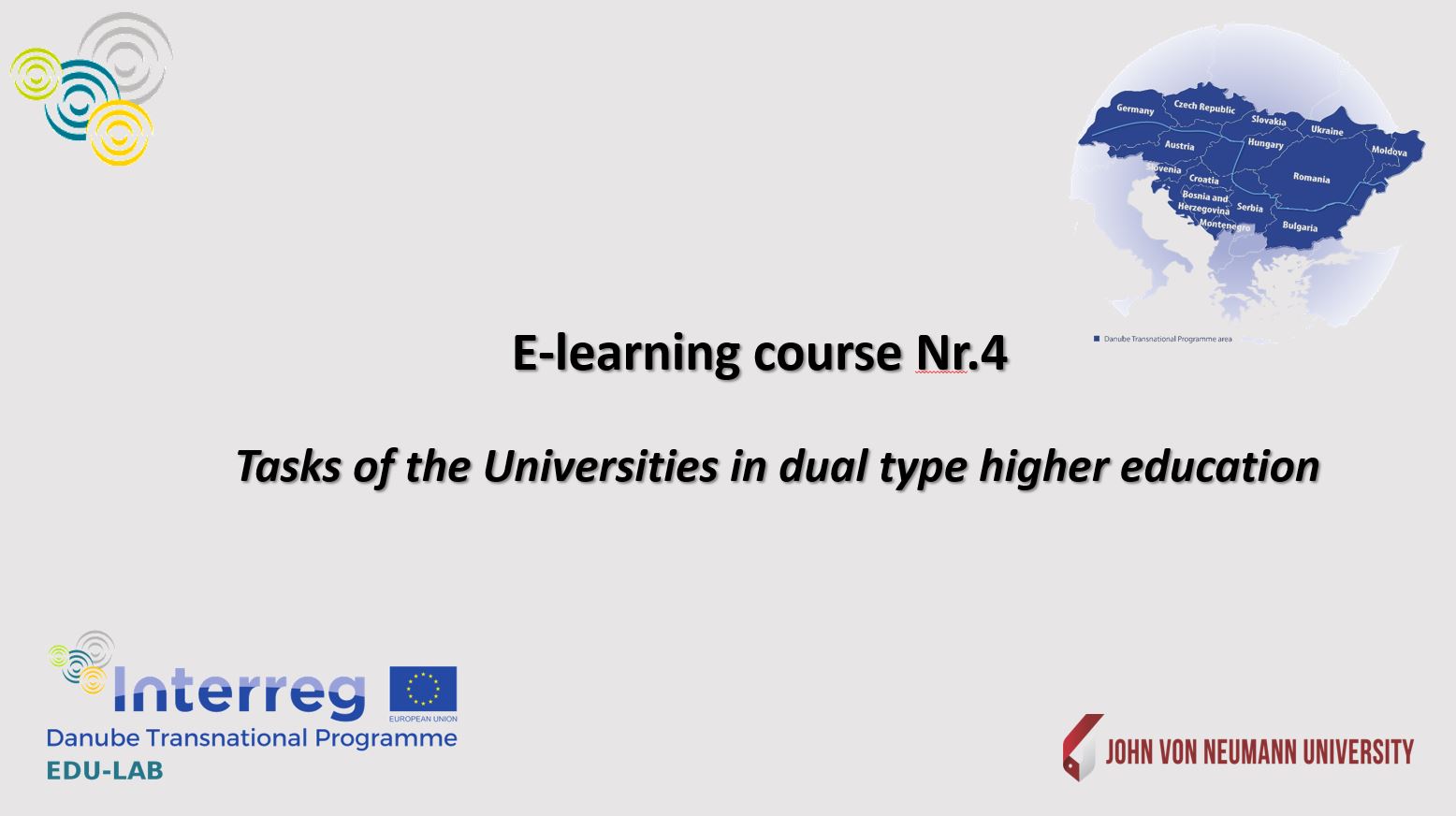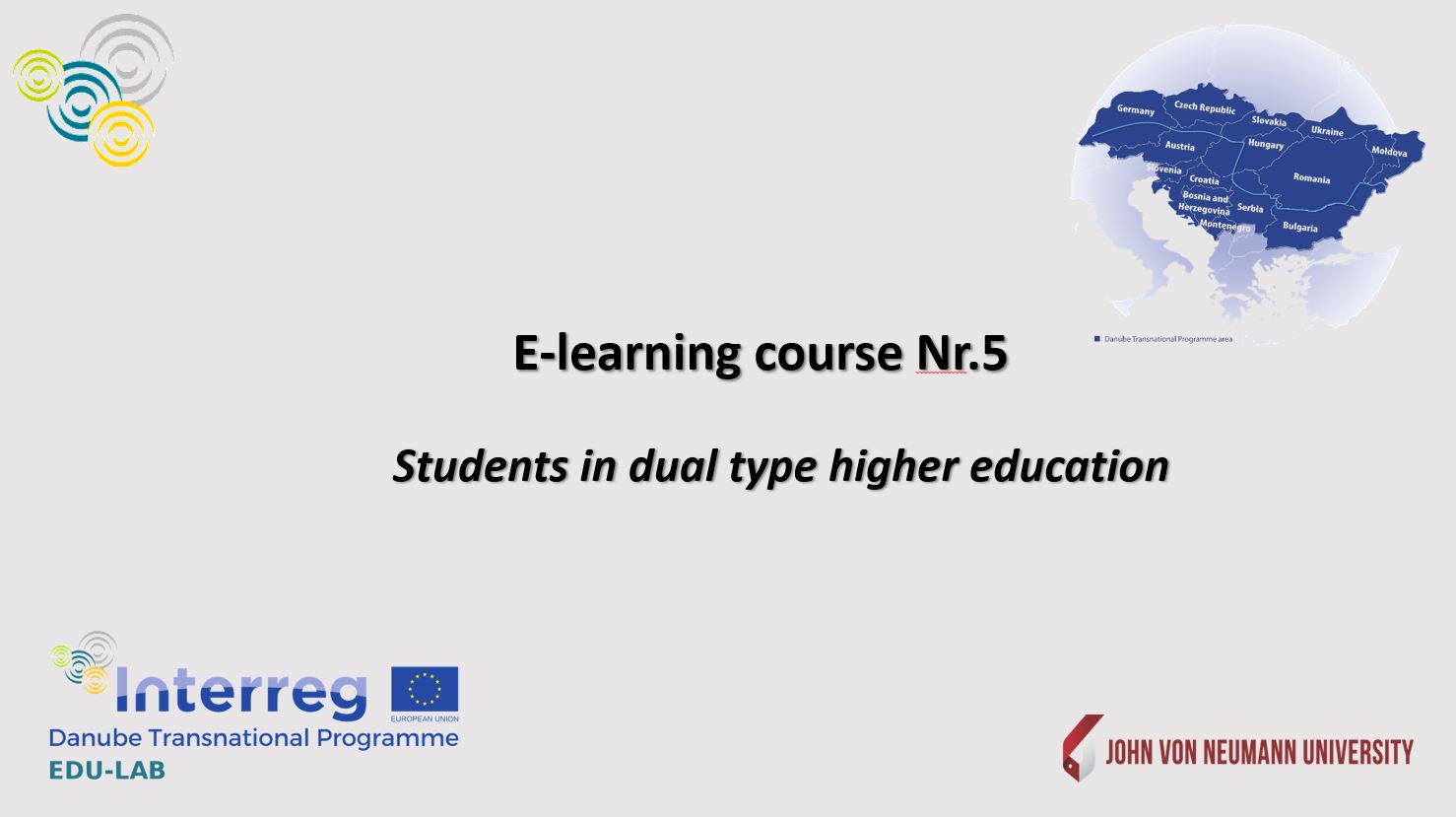EDU-LAB New Danubian Governance in Labour market Relevance of Higher Education
E-learning courses
In the framework of the EDU-LAB project, two sets of e-learning courses have been developed.
During the first year of implementation of the project, participating project partners have designed e-learning courses (ELCs) in order to enable stakeholders to contribute to a better linking of higher education to employment.
The e-learning courses are the following:
- Encouraging the further development of Higher Education Acts
- Fostering the creation of more professionally-oriented study programmes
- Enhancing professional training (train the trainers) in companies
- Strengthening the regional economic development
The courses show a variety of best practice examples for linking education to employment in the Danube Region and are targeted toeducational institutions, businesses and national public authorities. By pointing out successful alignments between higher educational offers and the needs of the business sector, the courses encourage stakeholders to look for their own solutions.
Find out more here.
Also in the framework of EDU-LAB, the John Von Neumann University in Kecskemét, Hungary developed five e-learning courses aiming to help implementing dual study programmes. It presents the process through the example of the “Kecskemét Model”, demonstrating the process from the perspective of all involved parties: universities, companies and students.
E-learning course Nr.1” General questions of dual type higher education” provides an overview of dual study programmes and includes the guidelines of the “Kecskemét Model”, the framework of cooperation between John von Neumann University and corporate partners, explaining in detail the programme structure and lessons learnt concerning benefits and risks of the programme.
- E-learning course Nr. 2 “Legal background for Higher Dual Education in Hungary” presents the fitting of the study programmes into the specific national legal framework, through the example of Hungary.
- E-learning course Nr. 3 “Tasks of the company partners in dual type higher education” serves as a guideline for companies, explaining their tasks and responsibilities from student recruitment until handing out diplomas.
- E-learning course Nr. 4 “Tasks of the Universities in dual type higher education” then shows the process of managing dual study programmes from the university side.
- E-learning course Nr. 5 “Students in dual type higher education” concentrates on the students` perspective, describing the admission process, curriculum and learning outcomes.
Learn more about the e-learning tools through the presentations:
